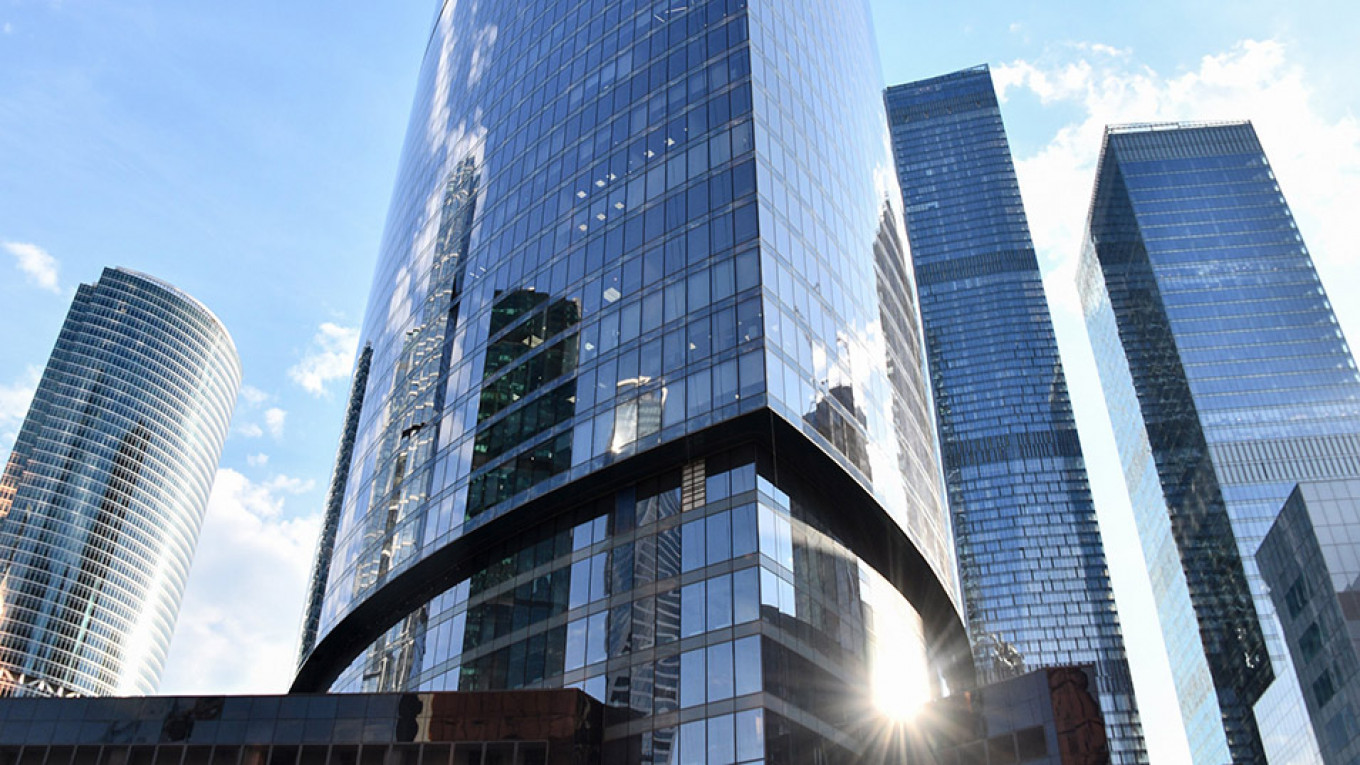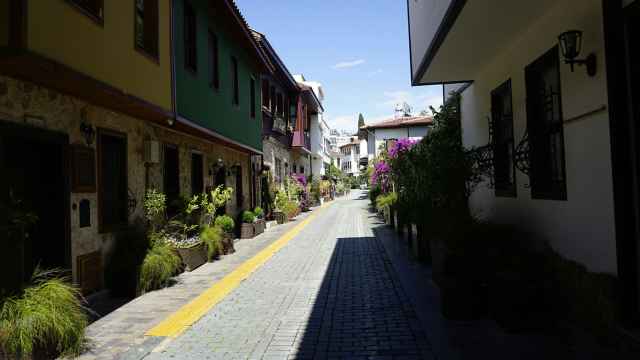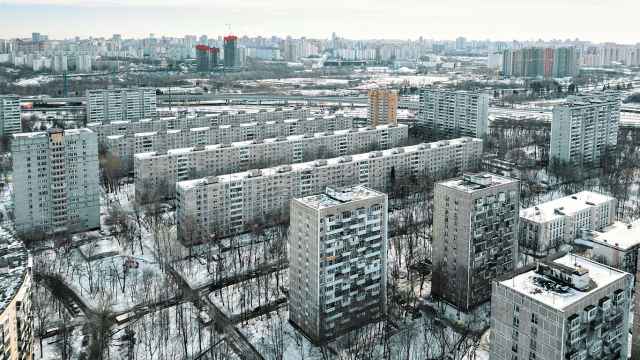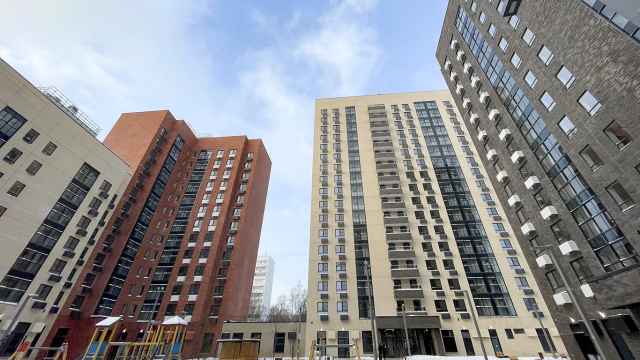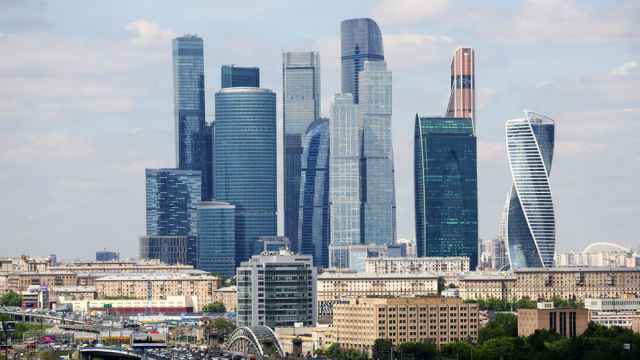Investment into Russia’s real estate sector surged in 2019 as the market finally turned the corner and brought the crisis years to a close.
Commercial real estate investment in Russia increased by 34% to a total of 243 billion rubles ($3.8 billion) in 2019, real estate group CBRE said in a recent industry report. It was only the fourth annual increase in the volume of transactions recorded in the last decade.
“Purchasing activity was supported by the steady macroeconomic environment, with key indicators either improving or meeting expectations. The Central Bank of Russia’s lowering of key interest rates to the lowest level since early 2014 improved conditions for debt financing, which also fuelled investment demand,” CBRE said.
Real estate is usually first into a crisis and last out. The collapse of oil prices and the subsequent deep devaluation of the ruble wounded the sector, which has been struggling ever since. However, after the economy started growing again in 2016 and more recently as real incomes started to recover in 2019 the conditions for real estate development has considerably improved.
Companies and entrepreneurs are increasingly judging the time is right to start investing again. The completion of several major deals in 2019 helped push up the average transaction size up to 1.6 billion rubles, from 1.4 billion the year before.
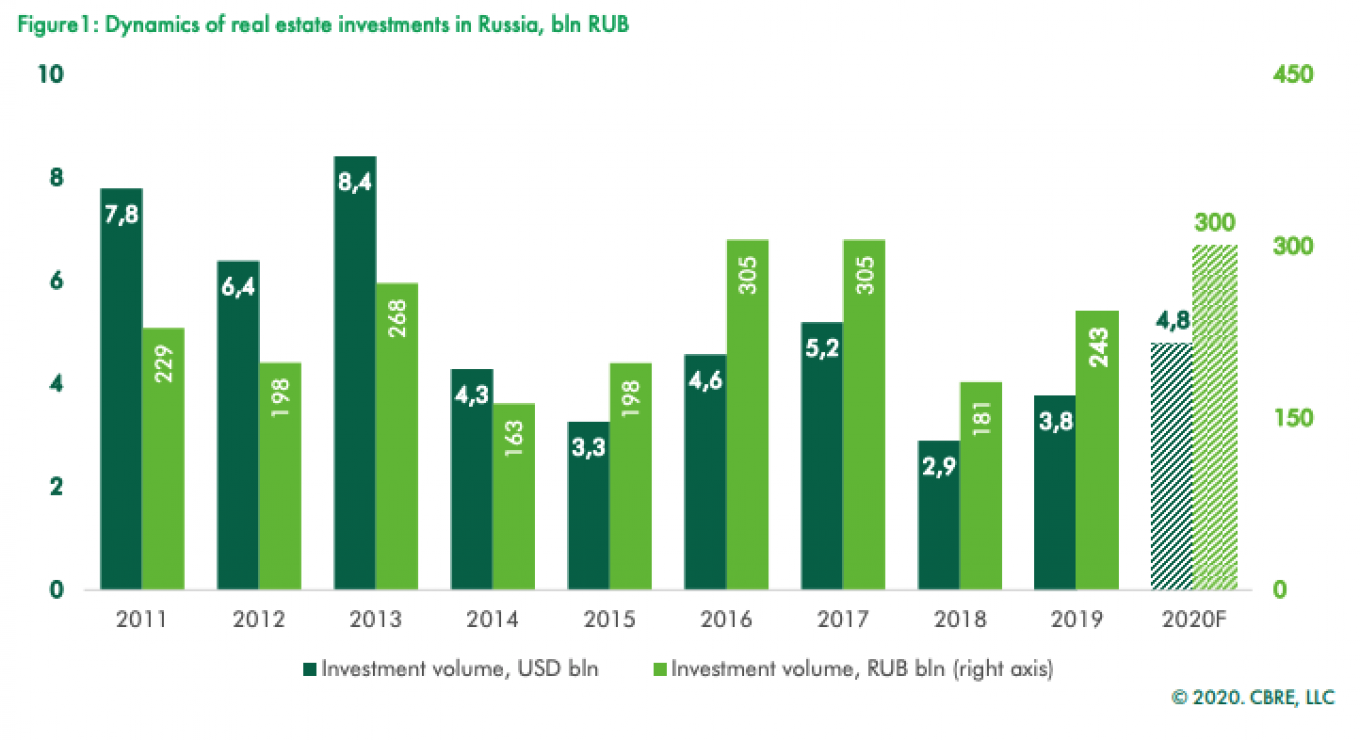
Given the average transaction size is still half that of four years ago — at 3.2 billion rubles — clearly the sector is only just starting its recovery and this is not the start of a boom. But given real estate is a multi-year proposition, some entrepreneurs think the time is right to get back into the market. For instance, three Moscow real estate legends — Michael Langer, Jean Francois Ott and Michel Pascalis — began fundraising January for a new $140 million fund that will specialize in developing smart warehousing to cater to the burgeoning e-commerce sector.
The retail sector accounted for around a third of all transaction volume in 2019, ensuring it retained its spot as the most popular sector for the third consecutive year. Several landmark shopping centre deals were closed during the period, pushing up transaction volume in the sector to 71 billion rubles ($1.1 billion), compared to 55 billion ($850 million) rubles a year earlier.
While the foreign investors that drove the real estate boom in the naughts are drifting back, another sign that it is still early days for the sector’s recovery is the fact that the investment into real estate remains largely a domestic affair, with Russian investors accounting for 71% of transaction volume last year.
National Projects boost
The sector is expecting an extra fillip in 2020 thanks to the increased spending by the government on its National Projects, which includes heavy investment in expanding the stock of residential accommodation.
Residential completions were up 6% last year to 80 million square meters, after three years of declines, according to mortgage providers Dom.RF.
Another big change underway in the real estate sector is that the number of shopping megamalls is falling as developers are increasingly concentrating on building smaller complexes in areas closer to shoppers or metro stations, as the retail sector responds to rapidly-expanding e-commerce in Russia.
Six retail projects have already been postponed this year, and half of the new space due to come online is for small and medium-sized stores.
While commercial real estate projects increasingly find themselves in direct competition with e-commerce businesses, warehouse developers are benefiting from the booming online retail business, as vacancy rates in the Moscow region declined from 5.7% to 3.7% over 2019 — a five-year low.
This article first appeared in bne IntelliNews.
A Message from The Moscow Times:
Dear readers,
We are facing unprecedented challenges. Russia's Prosecutor General's Office has designated The Moscow Times as an "undesirable" organization, criminalizing our work and putting our staff at risk of prosecution. This follows our earlier unjust labeling as a "foreign agent."
These actions are direct attempts to silence independent journalism in Russia. The authorities claim our work "discredits the decisions of the Russian leadership." We see things differently: we strive to provide accurate, unbiased reporting on Russia.
We, the journalists of The Moscow Times, refuse to be silenced. But to continue our work, we need your help.
Your support, no matter how small, makes a world of difference. If you can, please support us monthly starting from just $2. It's quick to set up, and every contribution makes a significant impact.
By supporting The Moscow Times, you're defending open, independent journalism in the face of repression. Thank you for standing with us.
Remind me later.



